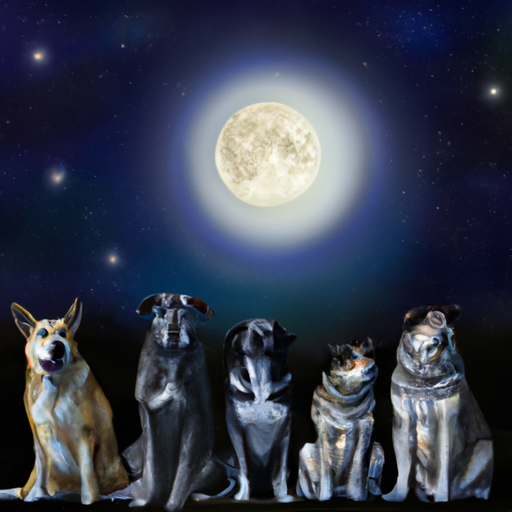Understanding the Behavior
As a caregiver, you’ve likely noticed your furry companion howling, and you may be wondering why. Well, dogs howl for a variety of reasons. It’s a form of communication that has been passed down from their wolf ancestors. They howl to alert other members of their pack, to express pain, to get attention, or even in response to certain sounds or stimuli. Understanding why your dog howls can help you provide better care and respond appropriately to their needs.
The Ancestral Link
Dogs are descendants of wolves, who are known for their trademark howls. Wolves howl to communicate with their pack members over long distances, to assert their territory, or to rally the pack before a hunt. For your pet dog, howling may simply be a throwback to their wild ancestors.
- Pack communication: Your dog may howl to let you and other dogs know their location, or to respond to other dogs.
- Territory assertion: Your dog may howl to assert their territory and ward off potential intruders.
- Rally cry: Your dog may howl out of excitement or anticipation.
Responses to Stimuli
Sometimes, dogs howl in response to certain sounds or stimuli.
- Sirens and music: High-pitched sounds like sirens or certain notes in music can trigger your dog’s howling. They are simply responding in kind to what they perceive as another howl.
- Separation anxiety: If your dog suffers from separation anxiety, they may howl when left alone. This is their way of expressing their distress and calling for your return.
Medical Concerns
Howling can also be an indicator of pain or discomfort. If your dog’s howling is accompanied by other signs of distress, such as changes in behavior, decreased appetite, or physical discomfort, it’s time to consult a vet.
| Signs of Distress |
|---|
| Changes in Behavior |
| Decreased Appetite |
| Physical Discomfort |
Training and Management
If your dog’s howling becomes a nuisance, there are ways to manage it through training. Rewarding your dog for being quiet, providing distractions during known triggers, and seeking professional help if the howling is due to separation anxiety can be effective strategies.
FAQs
- Why does my dog howl when I play the piano?
-
Dogs often howl in response to high-pitched sounds. Your piano playing probably sounds like a howl to them.
-
Should I be worried if my dog howls a lot?
-
Excessive howling could indicate distress or medical issues. If your dog’s howling is out of the ordinary, consult your vet.
-
Does howling mean my dog is unhappy?
- Not necessarily. Dogs howl for a variety of reasons, not all of them negative. However, if the howling is accompanied by other signs of distress, it’s worth investigating further.
Remember, as a caregiver, understanding your dog’s behavior is the first step towards providing them with the best possible care.



